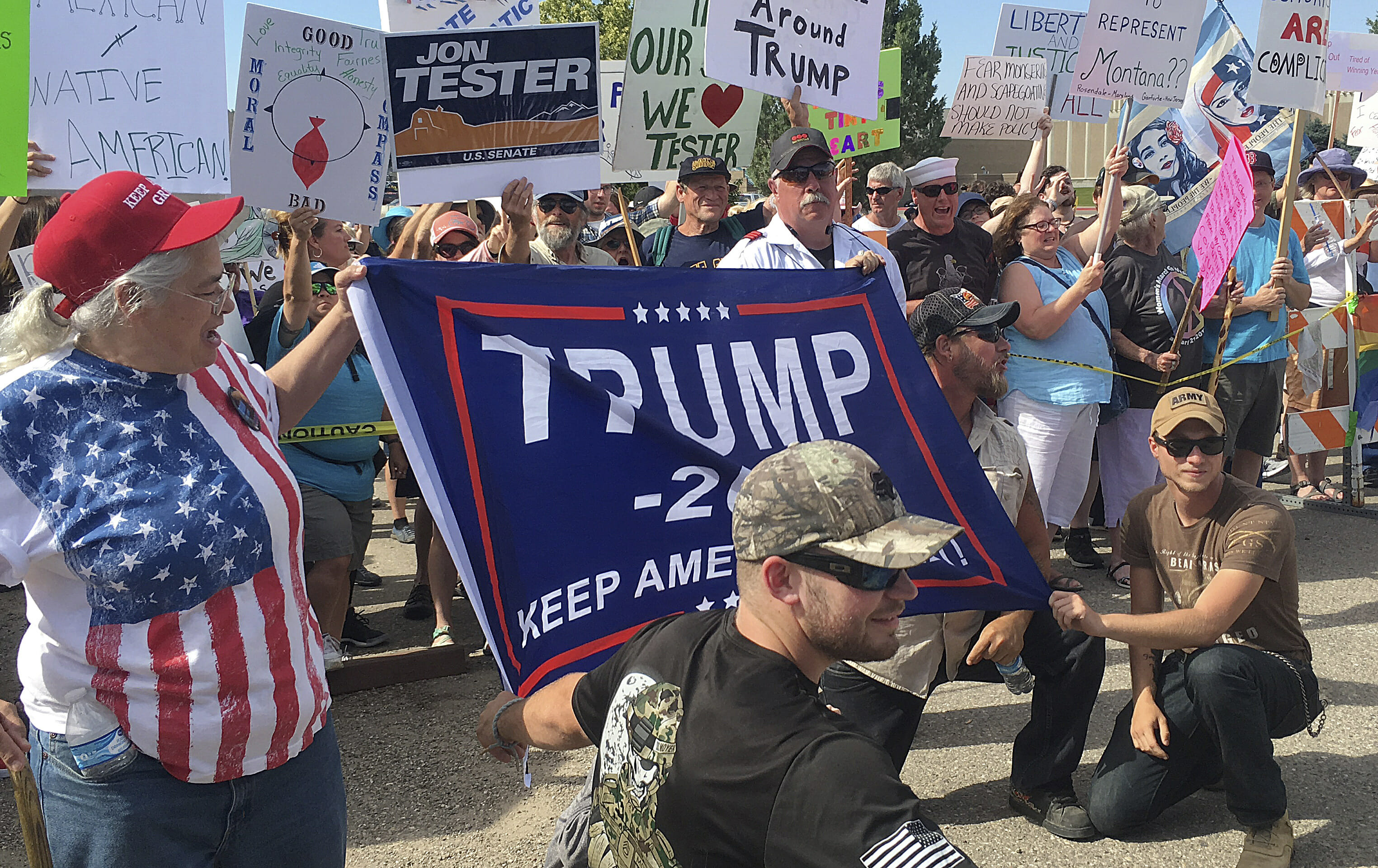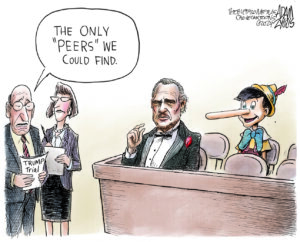Poll: Trump Voters Worry They or Family Will Be Attacked by MS-13
The president is using the gang as an excuse for harsher immigration policies. A Trump rally in Great Falls, Mont., in July. (Matt Volz / AP)
A Trump rally in Great Falls, Mont., in July. (Matt Volz / AP)
President Trump can’t stop talking about the Central American gang MS-13. He has done so at campaign rallies, on Twitter and even during his 2016 Time Magazine Person of the Year interview, when he told writer Michael Scherer, “They’re tougher than any people you’ve ever met. They’re killing and raping everybody out there. They’re illegal.”
This consistent messaging has paid off. According to a new HuffPost/YouGov Poll, 85 percent of Trump supporters surveyed believe, as Dana Liebelson and Ariel Edwards-Levy write in HuffPost, that the gang “is a very serious or somewhat serious threat to the United States as a whole.” Approximately half of those supporters “are worried a great deal or somewhat that they or a family member will fall victim to MS-13 violence.”
By contrast, “Among Hillary Clinton voters, only 32 percent consider MS-13 a very serious or somewhat serious threat to the country, and 13 percent are worried about the gang’s violence affecting themselves or a family member.”
The poll results, as Liebelson and Edwards-Levy write, indicate that “the Trump administration may be succeeding in inflating the perception of the gang’s national risk.” While the gang’s influence has expanded beyond its 1980s Los Angeles roots, it owes much of that strength to U.S. immigration policies.
As J. Weston Phippen explains in The Atlantic, MS-13 began when Salvadoran immigrants in Los Angeles became affiliated with the city’s gangs. After a 1987 Los Angeles police initiative called Operation Hammer put many gang members in prison, the Clinton administration decided to reduce the prison population by sending incarcerated immigrants back to El Salvador, which was in the midst of a civil war.
As Phippen writes, “In one four-year period, the U.S. deported more than 20,000 criminals to El Salvador, and with them they brought tactics learned from U.S gangs.”
El Salvador borrowed the LAPD’s strategy of jailing gang members. Phippen says that “the approach backfired.” Incarcerating gang members may have made MS-13 stronger.
Liebelson and Edwards-Levy explain that gang activity flourished in Central America after the U.S. deported gang members back there. Now, unaccompanied minors are coming to the United States fleeing that violence.
Nonetheless, Trump continues to overstate the influence of MS-13. Liebelson and Edwards-Levy write that the gang is “less a sophisticated international organization than a collection of cliques engaging in violence, small-scale drug-dealing and other crimes. It has about 10,000 members nationwide, according to the Justice Department ― roughly the same as a decade ago.” Gang members are concentrated in Los Angeles, New York and outside Washington, D.C.
These nuances haven’t trickled down to many Trump voters, at least not the ones who responded to the latest HuffPost/YouGov poll. In fact, Trump’s speeches about MS-13 have also influenced his voters’ views on immigration. “Overall,” HuffPost reports, “87 percent of Trump voters want stricter immigration policies, compared with 15 percent of Clinton voters.
Your support matters…Independent journalism is under threat and overshadowed by heavily funded mainstream media.
You can help level the playing field. Become a member.
Your tax-deductible contribution keeps us digging beneath the headlines to give you thought-provoking, investigative reporting and analysis that unearths what's really happening- without compromise.
Give today to support our courageous, independent journalists.






You need to be a supporter to comment.
There are currently no responses to this article.
Be the first to respond.